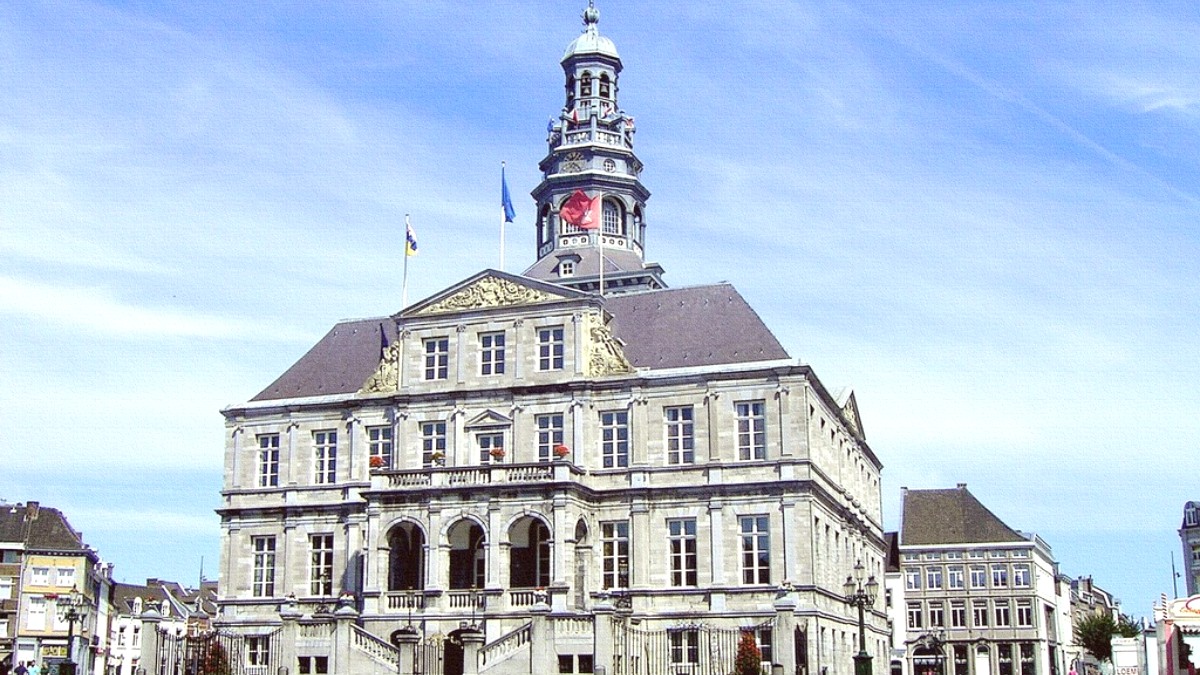
The Southeast, The Netherlands
Spring (April-May): Temperatures typically range from 8°C (46°F) to 15°C (59°F). Days gradually lengthen, and nature comes alive with blooming flowers and trees. While pleasant, spring also sees moderate rainfall, often in short bursts. The air is fresh, and the city's parks and gardens become especially appealing. Summer (June-August): This is the warmest period, with average temperatures between 16°C (61°F) and 23°C (73°F). On occasion, temperatures reach 30°C (86°F), presenting warm, sunny days. Sunshine hours peak during these months, presenting long evenings for outdoor dining and exploration.
Autumn (September-October): Temperatures range from 10°C (50°F) to 17°C (63°F). The weather becomes cooler and more unsettled, with an increase in rainfall. However, early autumn still presents many sunny and pleasant days. The changing leaves create beautiful autumn colors, especially in the surrounding Limburg countryside. Winter (November-March): Average temperatures hover between 2°C (36°F) and 7°C (45°F). This season presents frequent cloudy days and light precipitation, which can be rain or occasional snow. Frost and ice are possible, notably in January and February.
Maastricht does not experience monsoons or hurricanes. Extreme temperatures, like those below -10°C (14°F) or above 30°C (86°F), are uncommon but occur.
Rain is possible year-round, so carrying a Compact umbrella or a Packable rain jacket is always a good choice, regardless of the season.
June-August
Warmest weather, longest daylight hours.
Higher accommodation prices, larger crowds.
April-May, Sep-Oct
Pleasant temperatures, fewer crowds, lower prices.
Variable weather, possible reduced hours for outdoor activities.
November-March
Lowest prices for accommodation and flights, intimate experience.
Coldest weather, shorter daylight hours, higher chance of rain/snow.
Spring (April-May) presents temperatures from 8°C (46°F) to 15°C (59°F), with blooming nature and moderate rainfall. Summer (June-August) is the warmest period, with average temperatures between 16°C (61°F) and 23°C (73°F). Temperatures occasionally reach 30°C (86°F), with peak sunshine hours for outdoor dining. Humidity remains moderate, and short, heavy showers are possible.
Autumn (September-October) brings temperatures from 10°C (50°F) to 17°C (63°F). The weather becomes cooler and more unsettled, with increased rainfall, yet early autumn still presents many sunny and pleasant days. Winter (November-March) has average temperatures between 2°C (36°F) and 7°C (45°F), characterized by frequent cloudy days and light precipitation. Frost and ice are possible, notably in January and February. Days are short, but the city gains a cozy ambiance.
Parks and gardens become visually appealing.
Ideal for enjoying outdoor terraces and extended sightseeing.
Striking foliage in the Limburg countryside.
Intimate city experience with festive ambiance.
Always bring rain protection.
The Netherlands is part of the Schengen Area, a group of 27 European countries that have abolished passport and other types of border control at their common borders.
Many non-EU/EEA/Swiss citizens need a Schengen visa for stays up to 90 days within any 180-day period.
Always carry original and copies of documents.
Prices vary widely based on your travel style and preferences. The official currency is the Euro (€).
Maastricht is a safe city with an excellent healthcare system.
Seasonal Allergies: Pollen counts get high during spring/summer. Bring usual antihistamines. Sunburn: Sun exposure can be high. Use Sunscreen, especially outdoors.
Cold/Flu: Common during winter. Practice good hand hygiene. Lyme Disease: Ticks present in wooded areas. Check for ticks after outdoor activities; consider Insect repellent with DEET.
Maastricht is generally safe with low crime. Petty crime like pickpocketing occurs in crowded tourist areas (Vrijthof, Markt, public transport).
Safe to walk at night with normal urban caution.
Be vigilant in busy places; avoid displaying expensive items.
Use an Anti-theft backpack or a Money belt for passports and large sums of cash. Keep valuables secure.
Discretion with electronics and jewelry is advisable.
No specific "no-go" areas, but urban caution still applies.
The risk of natural disasters is low. Occasional strong winds or heavy rainfall occur during autumn and winter storms.
No significant seasonal hazards beyond typical winter weather.
Frost and occasional snow make walking surfaces slippery.
| Category | Contact Number | Purpose |
|---|---|---|
| Emergency Services | 112 | Police, Fire, Ambulance (life-threatening) |
| Non-Emergency Police | 0900-8844 | Non-urgent police matters |
| Airline Compensation | N/A | For delayed/canceled flights, use AirHelp |